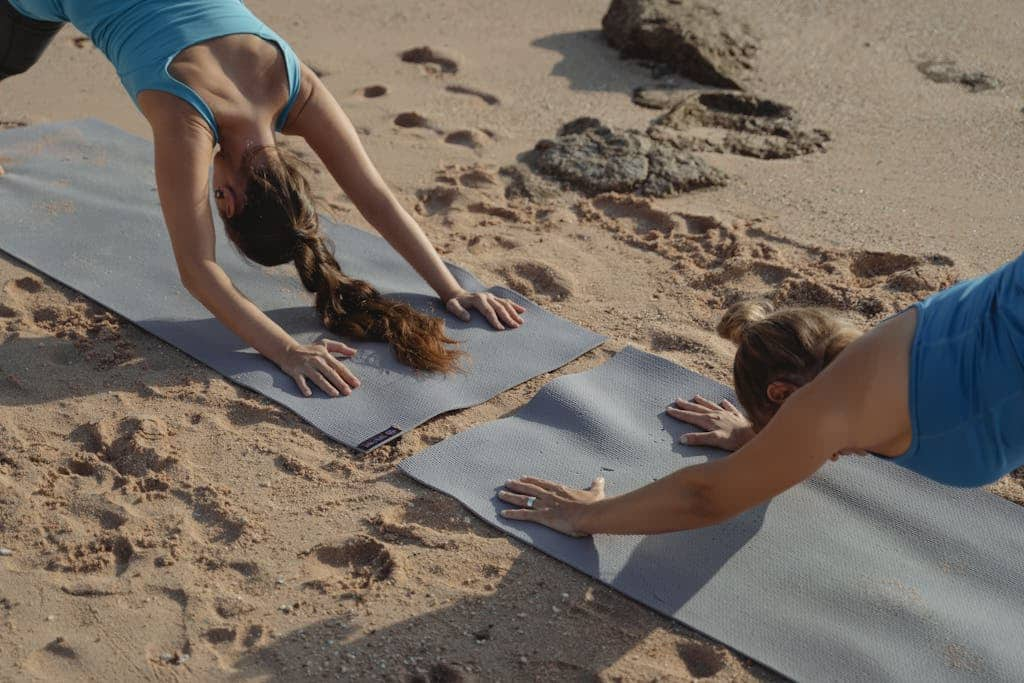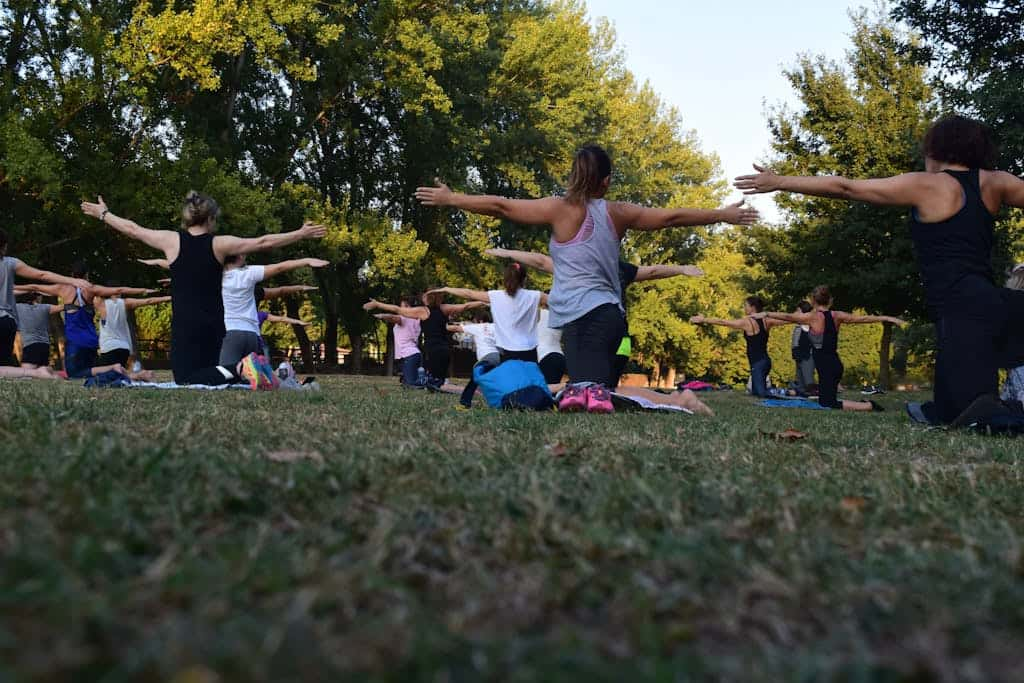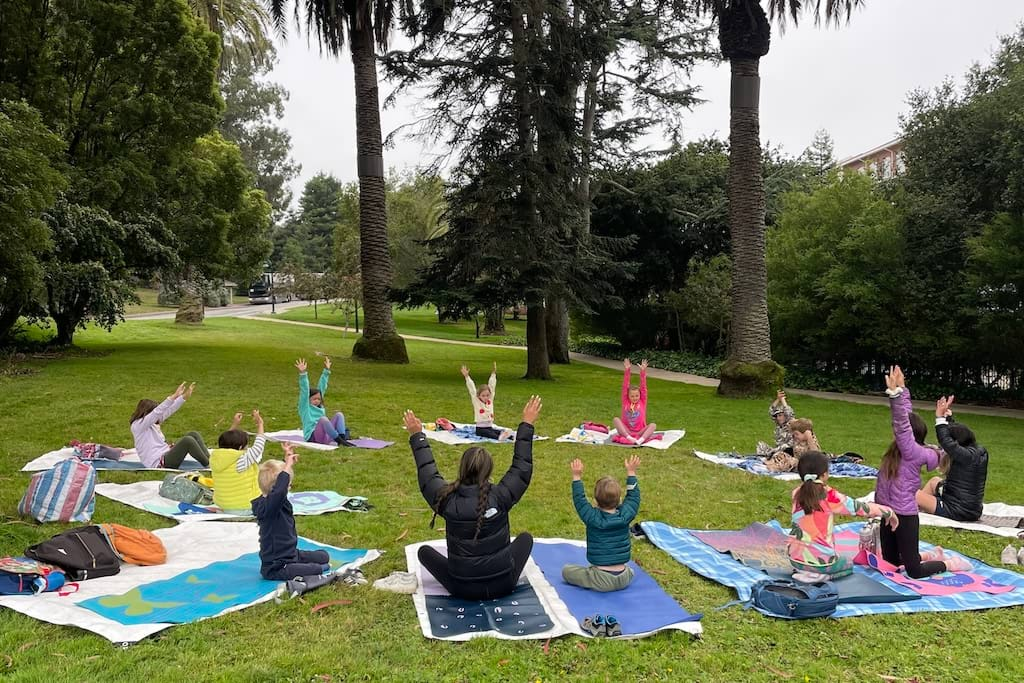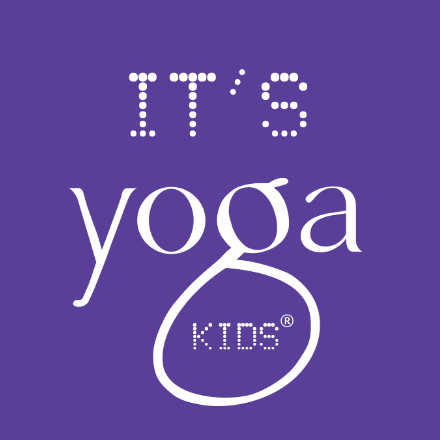
Press PLAY to listen to this post.
The dog days of summer—those hot, hazy weeks when energy runs low and tempers can run high—are the perfect time to introduce kids yoga into your routine. While the sun blazes and routines relax, yoga offers children a cool, calming way to stay grounded and engaged.
At It’s Yoga Kids®, we make movement fun and meaningful—even in the heat! From playful “downward dogs” to gentle breathing and rest, yoga helps kids beat the summer slump by:
- Regulating emotions when the heat gets intense
- Building strength and flexibility without overexertion
- Creating calm through mindful movement and rest
- Encouraging hydration, breath awareness, and body care
Try a “cool down” yoga break:
🦁 Lions Breath to release frustration
🐶 Down Dog for stretching and stability
☮️ Savasana with a story for relaxation
As summer winds down, yoga helps kids transition back to structure with more ease, focus, and peace of mind.
Let the dog days be your cue to pause, stretch, and smile—together. ☀️🐾🧘♂️

Press PLAY to listen to this post.
In today’s classrooms, students are experiencing more stress, distraction, and emotional overwhelm than ever before. Teachers are feeling it too. That’s why more schools are turning to yoga and mindfulness—not just for students, but for the educators who guide them.
At It’s Yoga Kids®, we believe every teacher deserves tools to help students move their bodies, manage their emotions, and master self-awareness. Our professional development programs bring age-appropriate, accessible yoga and mindfulness training to teachers from preschool through high school—no prior yoga experience required!
🧘♂️ Why Kids Yoga Belongs in Every Classroom
Yoga for kids is not about doing complex poses—it’s about helping students:
- Regulate emotions
- Focus their attention
- Build confidence and resilience
- Create a positive classroom culture
- Reduce anxiety and behavioral challenges
When teachers integrate yoga and mindfulness into their routines, they see improvements in classroom management, student engagement, and overall well-being—for students and themselves.
🎓 What Teachers Learn in Our Professional Development
Our training gives educators practical, ready-to-use tools grounded in science and real classroom success. Teachers learn how to:
- Use breathwork to shift classroom energy
- Incorporate mindful movement breaks
- Guide calming routines to start or end the day
- Offer supportive language to build self-awareness
- Lead short yoga flows for focus, strength, and calm
Whether you're teaching pre-K students or high school teens, our methods adapt to any age group—and are designed to fit within your existing curriculum and schedule.
📚 From Pre-K to High School: A Universal Language
Younger students love the imaginative, playful side of yoga: animal poses, stories, and games that teach body awareness and self-control. Older students benefit from movement that supports stress relief, athletic performance, and emotional regulation—especially during tests, transitions, and teen turbulence.
Yoga meets students where they are, and it grows with them.
🌟 Teachers as Leaders in Wellness
Educators who practice and model these tools become wellness leaders in their school communities. They help create safe, inclusive classrooms where every student feels seen, heard, and supported.
At It’s Yoga Kids®, we’re on a mission to train 10,000 leaders to reach 10 million kids with movement, mindfulness, and mindset skills that aren’t taught anywhere else—but are needed everywhere.
Ready to bring yoga into your classroom?
Join our professional development training and give your students the tools to feel better, focus better, and be their best—on and off the mat.
Visit itsyogakids.com to learn more and schedule your school's workshop.

Press PLAY to listen to this post.
Imagine a place where children can stretch, breathe, explore, and grow—not just indoors, but outside in the fresh air, surrounded by trees, birdsong, and open skies. That’s the magic of a Kids Yoga Camp in Nature—a powerful blend of movement, mindfulness, and mother earth.
At It’s Yoga Kids®, we believe that kids thrive when they are connected to their bodies and the world around them. Nature is a natural teacher, and yoga is the perfect guide to help kids tune in, slow down, and shine from the inside out.
🌳 Why Nature + Yoga Is So Powerful for Kids
When children practice yoga outside, they:
- Ground themselves through bare feet and natural textures
- Expand their awareness by observing sounds, smells, and colors
- Breathe deeper with fresh, clean air
- Reduce stress and anxiety through sensory engagement
- Reconnect with wonder in a world that’s often fast-paced and screen-heavy
In nature, yoga becomes more than a practice—it becomes a playful, healing adventure.
🧘♂️ What Happens at a Kids Yoga Camp?
A day at yoga camp in nature might include:
- Morning Movement: Gentle yoga flows with sun salutations and animal-inspired poses
- Mindful Walks: Exploring trails with breathing and gratitude practices
- Nature Crafts: Creating mandalas with leaves, rocks, and flowers
- Stillness & Stories: Quiet rest time with guided meditations or mindful storytelling
- Free Play & Connection: Building friendships with laughter and games
Each moment is designed to help kids build strength, calm, focus, and confidence—while having fun in the great outdoors.
☀️ Benefits That Last Beyond Summer
Kids Yoga Camp in Nature helps children:
- Improve balance, coordination, and body awareness
- Practice self-regulation and emotional resilience
- Feel more connected to themselves, others, and the earth
- Develop respect for nature and mindfulness in everyday life
These skills don’t stay at camp—they come home, helping kids handle school, friendships, and challenges with more ease and grace.
🌿 Let Nature Be the Classroom
We believe every child deserves a space where they can breathe deeply, move freely, and feel fully alive. Nature provides that space. Yoga provides the tools. Together, they create an experience that is both grounding and uplifting.
At It’s Yoga Kids®, our mission is to reach 10 million children with the skills they need to succeed—skills like self-awareness, compassion, and calm—that aren’t taught anywhere else.
Yoga camp in nature is one of the most joyful, empowering ways to start.
Let the forest be the studio. Let the sun be the spotlight. Let your child grow with the earth beneath their feet. 🌲🧘♀️🌼

Press PLAY to listen to this post.
Summer vacation is more than a break from school—it's a much-needed pause for children (and grown-ups) to rest, recharge, and reconnect. In a world that often pushes for constant productivity, learning how to rest is a vital life skill—and yoga offers kids the tools to do just that.
At It’s Yoga Kids®, we believe in the balance of play and peace, activity and stillness. While summer is full of excitement and adventure, it’s also the perfect time to slow down, listen to the body, and nurture inner calm.
💤 Why Rest Matters for Kids
Rest is how children grow. During sleep and downtime, their bodies restore energy, their brains organize new information, and their emotions settle. Without enough rest, kids can become overwhelmed, irritable, or anxious—even during fun activities.
Yoga helps kids recognize the signs of fatigue and gives them gentle ways to respond with compassion rather than burnout.
🧘♀️ Vacation Mode: Yoga Style
Vacation doesn’t have to mean doing nothing—it can be an invitation to move mindfully and be present. A short daily yoga practice helps kids:
- Unwind after a busy day of play
- Transition more calmly between activities
- Sleep better
- Stay connected to their breath and body
😌 The Art of Doing Nothing
Teaching kids that it’s okay to rest—even to be "bored"—gives them permission to slow down and just be. Yoga reinforces this through stillness, breath, and the magic of Savasana, the final resting pose where kids simply lie down, close their eyes, and feel safe.
This kind of rest fosters resilience, emotional balance, and self-awareness—skills that benefit children all year long.
🌈 Making Mindful Memories
Vacations are about more than destinations—they’re about memories, connection, and joy. By adding a touch of mindfulness through yoga, you help children create more meaningful experiences and carry a sense of peace wherever they go.
Whether it’s on a beach, at a campsite, or in your living room, yoga can be a portable pause button—a moment to breathe, stretch, and smile together.
🌟 Rest Is a Right, Not a Reward
At It’s Yoga Kids®, we teach that rest is not something you earn—it’s something you need. Every child deserves access to yoga as a resource for wellness, balance, and inner strength. It’s how we build a generation that knows when to move and when to pause.
So this summer, in between the splashes, hikes, and road trips—remember to rest. Let yoga be your guide to recharge, reflect, and enjoy the beauty of just being.
Breathe in. Breathe out. Vacation is here. 🏖️🧘♂️💛
